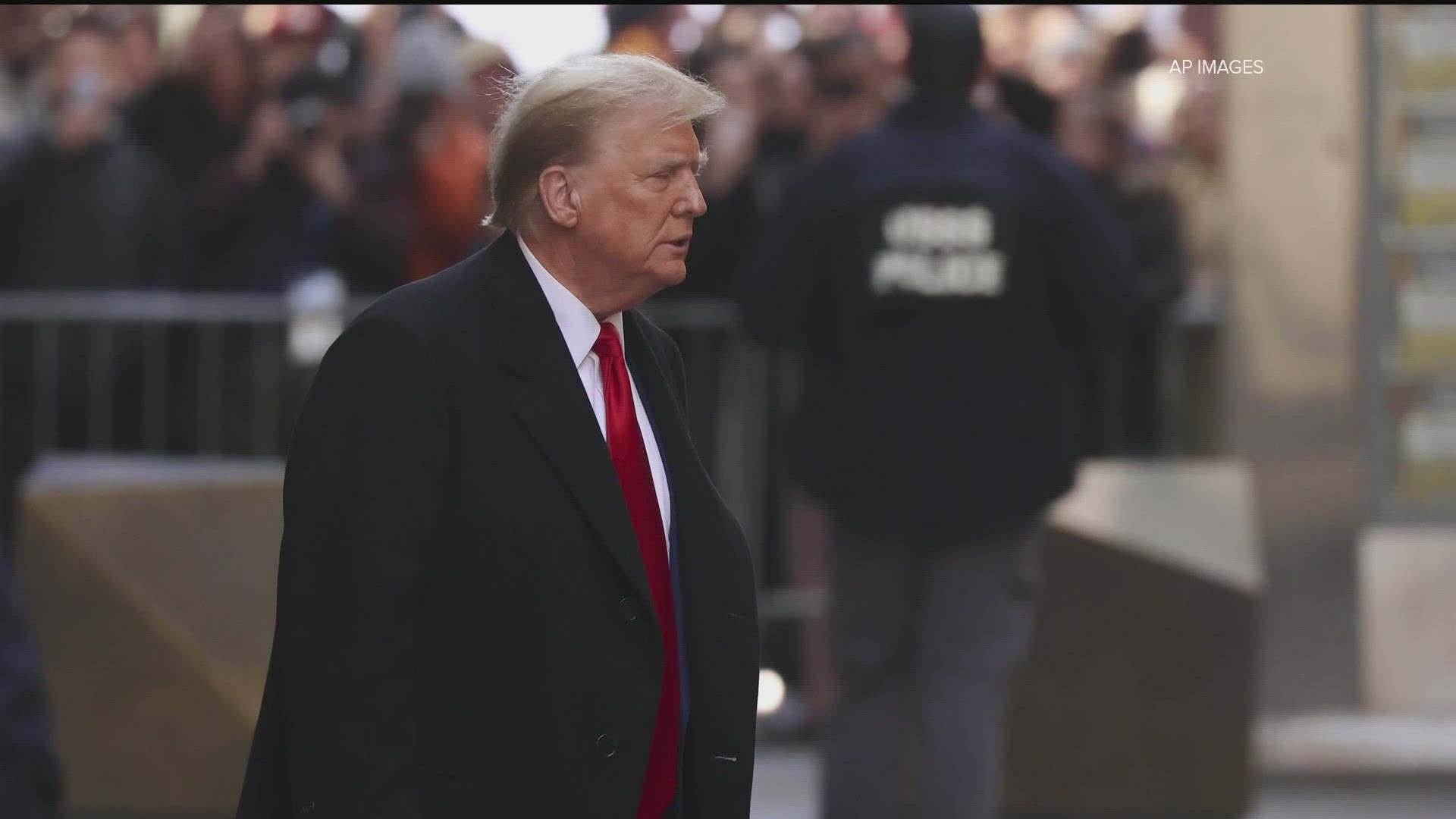FULTON COUNTY, Ga. — Former President Donald Trump and other co-defendants in Georgia's 2020 election interference case are working to appeal an order denying to dismiss the case on First Amendment grounds.
Last week, Fulton County Superior Court Judge Scott McAfee denied Trump's motion to dismiss along with similar First Amendment challenges raised by others in the case.
A hearing had been previously held about the former president's motion, in which Trump's attorney, Steve Sadow, argued that Trump's alleged criminal acts were political speech and should be protected by the First Amendment. Whereas prosecutors countered that protections are not limitless.
In the end, the judge sided with the prosecution. He denied the motion and ruled that constitutional First Amendment protections "do not reach the actions and statements alleged by the State." He also cited precedent and wrote that free speech, including political speech, is not without restriction.
"Even core political speech addressing matters of public concern is not impenetrable from prosecution if allegedly used to further criminal activity," the judge wrote.
However, in a Monday motion, Trump and other codefendants asked the court to grant a certificate of immediate review. If granted, it's effectively a permission slip for defendants to take their appeal immediately to Georgia's Court of Appeals.
Attorneys for the defendants wrote in the motion that immediate appellate review is warranted because it relates to their political, free speech rights regarding the 2020 Presidential election.
They also said that no Georgia appellate courts have addressed "whether the challenged Georgia statutes can survive the criminalization of Defendants' core political speech."
Emory Law School professor John Acevedo previously told 11Alive that Judge McAfee's ruling to deny the motion to dismiss was not a surprise.
"It's in line with Georgia's previous caselaw on RICO and First Amendment. It's in line with federal rulings on this issue," he said.
That said, the defendants' attorneys argue that having an appellate review is necessary in this instance because it is a concern for both the efficient resolution of the case and the protection of First Amendment rights. They argue that it makes sense to resolve these issues in advance of any jury trials.
"This is especially true given that very little Georgia appellate guidance is currently available regarding the particular challenges to the statutes at issue in the context of core political speech amidst the backdrop of an electoral context.
Sadow, Trump's lead defense counsel, also released a statement explaining the purpose of Monday's joint motion.
"The motion powerfully expresses that the Indictment wrongfully criminalizes core political speech and expressive conduct protected by the First Amendment. There is no democracy without robust and uninhibited freedom of expression. For these reasons, among others, the Court’s Order is ripe for pretrial appellate review," Sadow said.
It now goes to the judge to decide on whether to sign off on the first step required to appeal the order.

